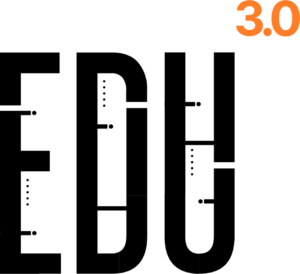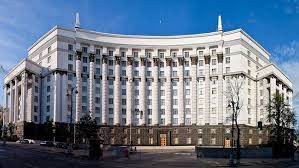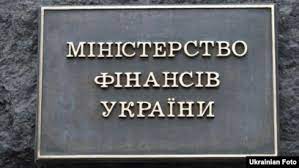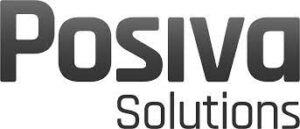
Gold, which ended trading last Thursday at an all-time high, continues to rise in price on Monday on expectations that the Federal Reserve will soon begin cutting interest rates, MarketWatch writes.
On Friday, stock exchanges in the U.S. and many European countries were closed due to Easter.
Quotes of June contracts for the precious metal were $2238.4 per ounce at the close of trading on New York’s Comex exchange on Thursday. On Monday, it rose 1.7% to $2276.9.
Gold added 8.9% in March and was up 8% for the entire first quarter.
The “unprecedented rally” was triggered by softer-than-expected U.S. inflation data, which reinforced expectations that the Fed could start lowering rates as early as June, IG Senior Market Analyst Sergio Avila said.
The U.S. consumer price index (PCE index) in February rose by 0.3% in February compared to the previous month, the Commerce Department said on Friday. The rise was weaker than analysts’ expectations, who had forecast inflation to remain at January’s 0.4% rate.
Growth in the PCE Core index, which excludes the cost of food and energy, slowed to 0.3% month-on-month last month from 0.5% in January. The dynamics matched the consensus forecast.
Markets estimate the probability of a Fed prime rate cut in June at about 70%, Avila said. And it is expected to be cut by 75 basis points in total over 2024 from its current range of 5.25-5.5% per annum.
“Lower interest rates create a favorable environment for gold, increasing its attractiveness as an investment asset,” the expert added.
“Gold investors are currently acting with the belief that the Fed will choose to cut interest rates regardless of whether inflation reaches its target level or not,” said Stephen Innes, managing partner of SPI Asset Management. Demand is also being driven by the fact that central banks in developing countries are increasing their holdings of the precious metal, he said.

The war in Ukraine has caused more than 4 million people to lose their homes due to destruction from missile attacks and forced displacement from the frontline and occupied territories. Amid these challenges, there is an urgent need for affordable, adaptive and flexible housing.
This is the problem addressed by European Design Upgrade 3.0, an international project aimed at finding and implementing effective solutions and technologies in the development of modular housing for people who have lost their homes. The goal of the project is to rethink modular construction for crisis areas and situations, such as wars, natural disasters, and other adversities.
“The key idea of EDU 3.0 is to bring together architects, engineers, designers, and other stakeholders to create new and effective solutions in the construction of modular buildings. This is an important task and a serious challenge, as modular houses are the key to solving the problem of temporary affordable housing in Ukraine for all those affected by the war,” comments Yuriy Pyvovarov, President of K.Fund, the project’s implementing organization.
The EDU 3.0 program was developed jointly with leading experts from Estonia, Ukraine, and Finland and is based on the principles of human-centered design thinking. In particular, at the opening of the project, experts shared that in modular housing, this approach should take into account comfort, functionality, energy efficiency, and sustainability to meet the needs and experiences of people who have lost their homes. “Our main task is to change the attitude of people in Ukraine to this type of housing, to convey that modular construction is about quality, aesthetics, and energy efficiency, among other things,” adds Olha Batova, EDU 3.0 project mentor.
The project also focuses on solving urgent problems faced by Ukrainian and global modular settlements. Kateryna Tkachuk, an EDU 2.0 finalist and speaker of this year’s project, spoke about the most important ones:
1. Lack of personal and common space, as well as rooms specially equipped for cooking and hygiene.
2. Ignoring factors important for a safe and comfortable life, such as non-compliance with fire safety rules or constant dampness and mold.
3. Lack of flexibility and adaptability, which is also an important factor for adjustments for people with disabilities.

The project involves specialists in the field of design, construction and architecture, students and graduates of specialized higher education institutions, as well as entrepreneurs and members of the public. Currently, participants are at the stage of selection for the hackathon to develop new ideas, where they will be able to plan and design their solutions for modular housing in a group work format. Throughout the hackathon, as well as during the development of their own projects, participants will receive ongoing mentoring support, and later, the evaluation and selection of the best projects for awarding at the awards ceremony. The authors of the best concepts will receive additional support and funding to implement their project.
Participation is free of charge. EDU 3.0 is implemented by K.Fund, Brand Manual, UrbanMill, and Ultrahack. The project is funded by the European Union under the Creative Europe program. The project’s media partner is the Interfax-Ukraine news agency.
You can register for the hackathon, which will take place from April 11 to 13, and learn more about the project here: https://edupgrade.design/.

The Cabinet of Ministers of Ukraine has approved the creation of two new industrial parks (IP) – “Dnister” on the territory of Yampol city territorial community of Mogilev-Podolsky district of Vinnytsia region and “Galicia” on the territory of Kalush in Ivano-Frankivsk region.
According to the Ministry of Economy, total investments in the two industrial parks for the next three years should amount to more than UAH 1.5 billion.
Prime Minister of Ukraine Denis Shmygal at a government meeting on March 29 announced the inclusion of the two new parks in the Register of industrial (industrial) parks, and the creation of the State Office for the development of industrial parks.
According to the Ministry of Economy, the concept of IP “Dnister” assumes the creation of 265 jobs in the processing industry on an area of 17.2 hectares.
“It is assumed that the park will specialize in the production of paper and paper products, processing of plant products and other activities compatible with those listed,” the report explains.
In turn, IP “Galicia” will be located on an area of 19.8 hectares and will provide the creation of up to 1000 jobs.
The main directions of activity are determined by the manufacture of construction materials.
On the territory of the park will be created production of building materials from clay, production of cement, lime and gypsum mixtures, as well as manufacturing of products from concrete, gypsum and cement.
According to the Ministry of Economy, the investors plan to start production of machinery and equipment, introduce processing of industrial and household waste, engage in scientific and technical activities, as well as create enterprises that will work with alternative energy and energy conservation.
As reported, the state budget-2024 for the first time provided for the allocation of 1 billion UAH for the development of infrastructure of industrial parks.
CABINET OF MINISTERS, Galicia, INDUSTRIAL PARK, UKRAINE, Дністер

The Ministry of Finance of Ukraine has received $118 million on a non-refundable basis from Japan under the World Bank’s Health Enhancement and Life Saving (HEAL Ukraine) and Housing Repair for People’s Empowerment (HOPE) projects.
“The raised funds under the HEAL and HOPE projects will help the government to provide its citizens with adequate assistance, in particular, to expand the range of medical services and access to them, as well as to ensure overcoming the consequences caused by Russia’s armed aggression, to restore the housing infrastructure of Ukraine,” Minister Serhiy Marchenko was quoted as saying in the release of the Ministry of Finance on Monday.
It is specified that the attracted grant funding consists of $70 million under the HEAL Ukraine project, aimed at supporting the state budget as a reimbursement of incurred expenses under the Medical Guarantee Program, and $48.2 million – under the HOPE project, the funds of which are used to reimburse state budget expenditures used for compensatory payments to homeowners for repairs in apartment buildings and private houses in need of minor and medium repairs.
As reported, Ukraine received a record $8.9bn in international financial aid in March after only $1.2bn cumulatively in the first two months.
Due to the low external support, international reserves fell by 3.8%, or $1.47 billion, to $37.05 billion in February, after falling by 4.9%, or $1.98 billion hryvnia, in January.
The National Bank had forecast that the latest external inflows would allow international reserves to recover substantially. In January, it lowered their forecast for the end of 2024 to $40.4 billion from $44.7 billion.
HEAL Ukraine, HEALTHCARE, JAPAN, life preservation, Ministry of Finance of Ukraine

Finnish company Posiva Solutions has developed a concept for the construction of a deep disposal facility for the decommissioned Ignalina Nuclear Power Plant (INPP) in Lithuania, the plant said in a statement.
According to INPP Director General Linas Baužys, quoted in the statement, this is an important stage in the construction of deep burial facility.
“This month we started public consultations with municipalities. From now on, as we continue them, we will have an idea of how the future radioactive waste burial ground will physically look like and what specific measures will be taken to ensure its safety,” Baužis said.
The burial site will be several hundred meters deep. It will be an engineering structure designed to safely isolate radioactive waste. It is planned to be operational in 2068 and its location will be approved by 2047. The concept will be adjusted depending on the progress of the project development.
INPP signed a contract with a Finnish company for the amount of 262 thousand euros in January 2022. According to calculations made at that time, only the construction of of the burial ground will cost 1 billion euros, its use – another 900 million euros.
As reported, INPP was shut down on December 31, 2009, the term of work to stop its operation – until 2038. Lithuania pledged to close the plant upon joining the European Union, which co-finances these works.
The plant is equipped with the world’s most powerful Russian RBMK reactors, built in the 1980s. Work on dismantling the RBMKs is expected to start in 2028. INPP will issue separate tenders for this work.
Ignalina Nuclear Power Plant, LITHUANIA, Posiva Solutions, RADIOACTIVE WASTE
Import of goods in 2023 in most important positions to previous 2022

Source: Open4Business.com.ua and experts.news